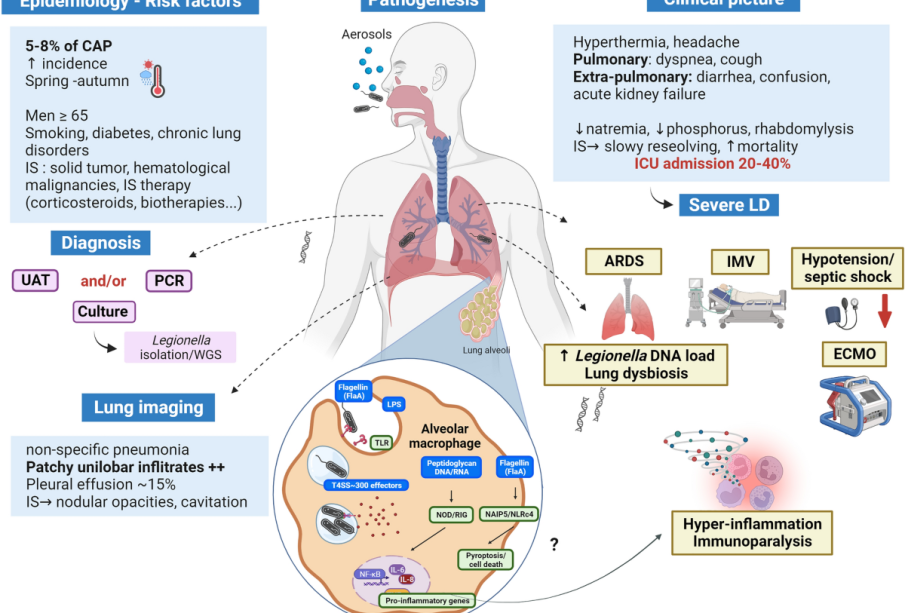Understanding Legionnaires’ Disease: Symptoms, Outbreaks, and Prevention

The Importance of Legionnaires’ Disease
Legionnaires’ disease is a severe form of pneumonia caused by the Legionella bacteria, which is found in freshwater environments. It can pose significant health risks, particularly to the elderly and those with compromised immune systems. With recent outbreaks across Canada, understanding this disease has never been more crucial.
Recent Outbreaks in Canada
In August 2023, Ontario public health officials announced an outbreak in the Durham Region, where multiple cases of Legionnaires’ disease were reported. Five individuals were hospitalized, with two classified in critical condition. Investigations linked the outbreak to a local cooling tower. The authorities promptly issued public advisories on the importance of maintaining and inspecting water systems to prevent bacterial growth.
Similarly, British Columbia experienced a spike in cases earlier this summer, leading to alerts in affected communities. Health officials emphasized the need for awareness, as many infections go unreported or misdiagnosed initially due to the similarity of symptoms to other respiratory illnesses.
Symptoms and Diagnosis
Symptoms of Legionnaires’ disease typically appear 2 to 14 days after exposure and can resemble those of the flu or other respiratory infections. Common symptoms include fever, chills, cough, muscle aches, headaches, and confusion. Severe cases can lead to respiratory failure and even death if not treated promptly. Diagnosis is usually confirmed through laboratory tests, including urine tests and cultures.
Prevention Measures
Preventing Legionnaires’ disease primarily involves proper maintenance of water systems. This includes regularly cleaning and disinfecting cooling towers, hot tubs, and plumbing systems. Public health guidelines recommend monitoring water temperatures, as Legionella thrives in warm water. Business owners and facility managers are encouraged to develop water management programs to minimize risk.
Conclusion
With the rise in Legionnaires’ disease outbreaks across Canada, it is imperative for both individuals and communities to stay informed about the potential risks and preventive measures. Early detection and proper maintenance of water systems can greatly reduce the incidence of this serious illness. As health authorities continue to investigate and respond to outbreaks, enhanced public awareness may play a vital role in curbing the spread of this disease in the future.









